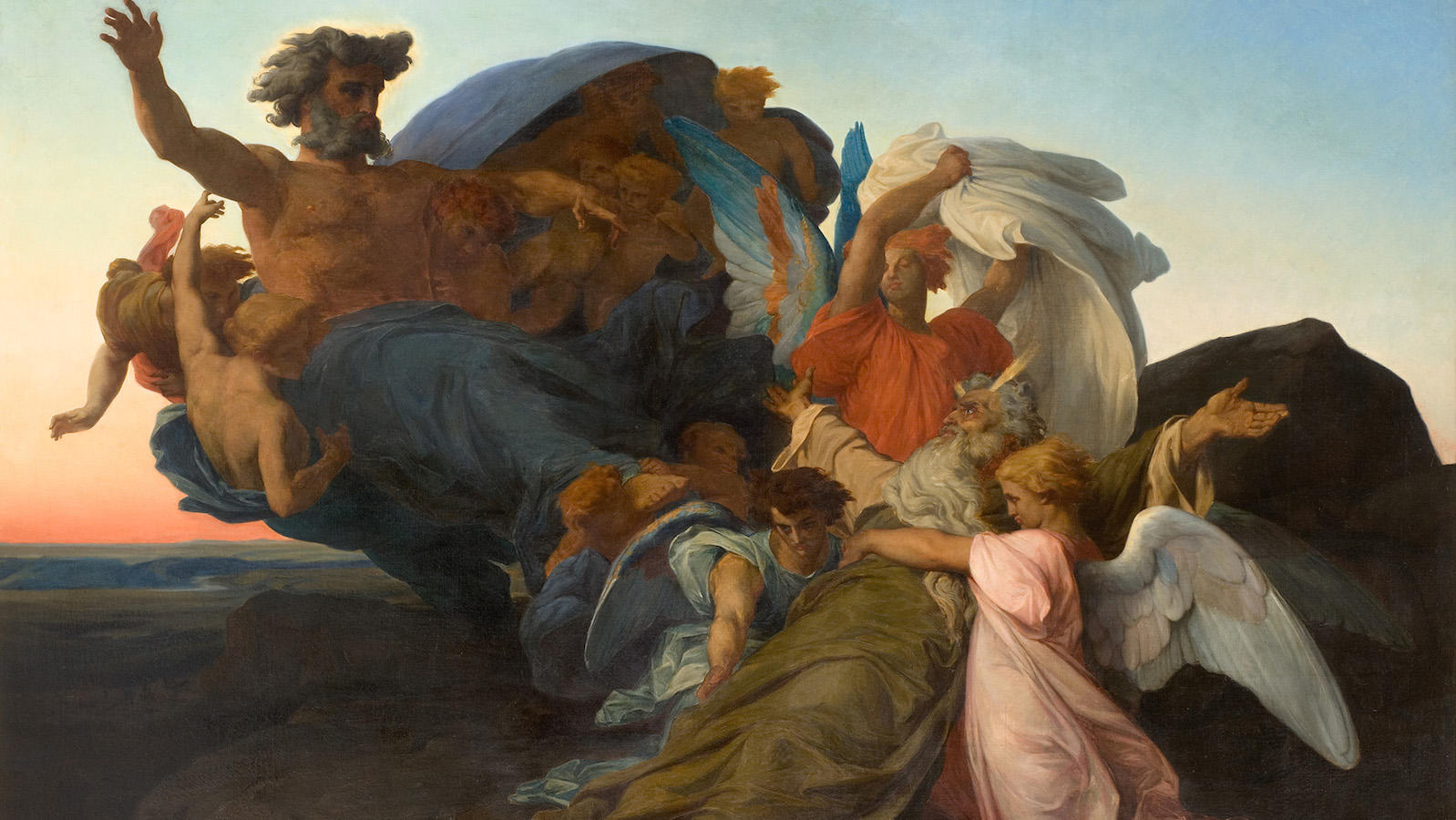Commentary on Parashat Vezot Haberakhah, Deuteronomy 33:1 - 34:12
Vezot Haberakhah, the concluding portion of the , is centered around the death of Moshe Rabbenu, Moses our Teacher. Generations of Bible readers have wondered about the stated reason why Moses was prohibited from entering the Promised Land.
The sin for which he is so punished, which occurred in Numbers 20:10-11 (for striking rather than speaking to a rock in order to bring forth water for the people), seems insignificant in comparison to his accomplishments and his obedience to God. Moses could have been taught the point that all people die just as well if he had been allowed to lead the people over the river and then had been allowed to die in the land of Canaan.
The Midrash discusses both this issue and Moses’ humanity in its commentary on Moses’ resistance to God’s decree. According to the , Moses begs God for favor and forgiveness for his sins. He tells God that he has been held to a higher standard and prays 515 times for a reversal of the decree. Moses pleads with God to make him into an animal and let him at least touch the land, but God refuses. God then relents a little and allows Moses to view the Promised Land. Other midrashim also contain the same general theme.
In contrast to the image of Moses begging to be turned into an animal, the Midrash grants Moses a beautiful death. At the end, God leans down from the heavens and ends Moses’ life with a soft, gentle kiss. This is derived from Deuteronomy 34:5, where it is written, “So Moses, the servant of the Eternal, died there, in the land of Moab, at the command of the Eternal.” The Hebrew reads, al pi Adonai, “by the mouth of the Eternal.” Hence the legend about God kissing Moses at his moment of death.

Help us keep Jewish knowledge accessible to millions of people around the world.
Your donation to My Jewish Learning fuels endless journeys of Jewish discovery. With your help, My Jewish Learning can continue to provide nonstop opportunities for learning, connection and growth.
According to the Midrash, God wept after Moses died, as did the heavens and the earth. Deuteronomy 34:6 tells us that “God buried him in the valley in the land of Moab, near Beth-peor; and no one knows his burial place to this day.”
Moses deserved the honor of having God perform his burial because, the Midrash says, during the Exodus from Egypt, when everyone else was looking for gold and silver, Moses was looking for the coffin of Joseph. And when Moses found it, he carried it on his own shoulders. Thus Moses helped to fulfill the oath made to Joseph in Genesis 50:25: “So Joseph made the sons of Israel swear, saying, ‘When God has taken notice of you, you shall carry my bones from here.'” The honor and respect that Moses paid to Joseph’s last wish to be buried with his ancestors are rewarded when God buries Moses, a singular divine act.
Thus we find that even though the decree of death cannot be overruled, God displays great compassion and empathy for the greatest prophet that ever arose in Israel, “whom the Eternal singled out, face to face.” (Deut. 34:10) Would that each of us be granted the same gentle and loving death.
As we end this year’s annual Torah reading cycle and complete our reading of Devarim (Deuteronomy), the fifth and final book of the Torah, we say Chazak, chazak ve’nitchazek! “Be strong, be strong, and let us be strengthened!”
Provided by the Union for Reform Judaism, the central body of Reform Judaism in North America.



